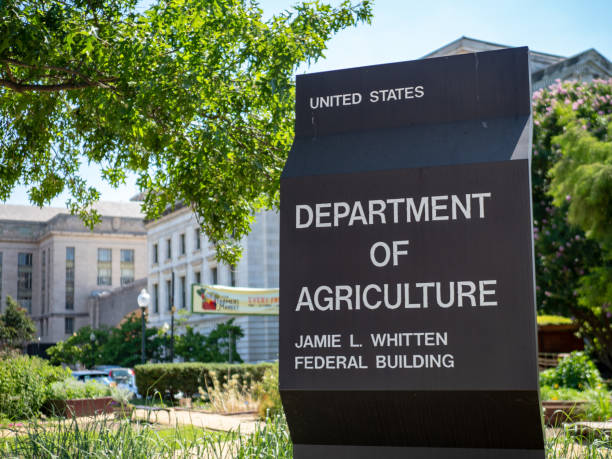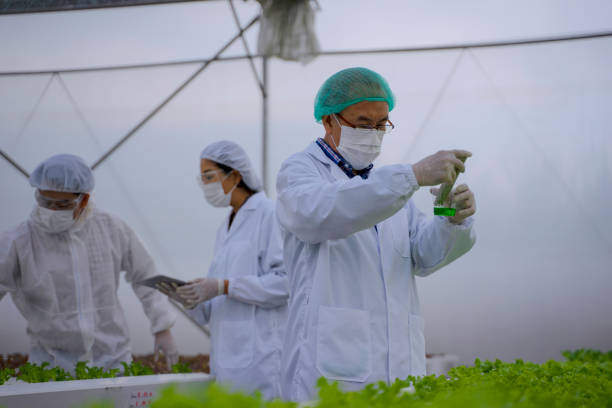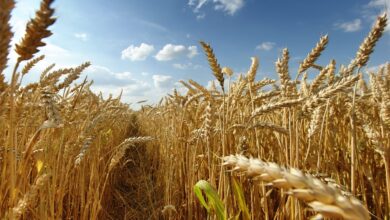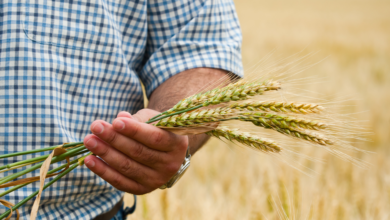What the Department of Agriculture Can Do to Support Your Community
DEPARTMENT OF AGRICULTURE

The Department of Agriculture is an essential government agency responsible for overseeing and regulating various aspects of the agriculture industry in the United States. While its primary role may be to ensure the safety and productivity of our nation’s food supply, the department also plays a crucial role in supporting local communities. In this blog post, we will explore some of the ways in which the department of agriculture can directly impact and benefit your community. From promoting sustainable farming practices to providing resources for small-scale farmers, the department has a wide range of initiatives that can positively impact the well-being of your community.
Understanding the Role and Functions of the Department of Agriculture
The Department of Agriculture, often referred to as the USDA, is an essential government agency that plays a significant role in supporting and regulating the agriculture industry in the United States. Its primary mission is to ensure the safety and productivity of our nation’s food supply, but its functions go far beyond that.
One of the key roles of the Department of Agriculture is to provide research and education to farmers, helping them improve their practices and increase their productivity. They conduct extensive studies on crop diseases, soil quality, and animal health, providing valuable insights that farmers can use to make informed decisions. Additionally, the department offers technical assistance and training programs to farmers, enabling them to adopt sustainable and efficient farming methods.
The USDA also plays a crucial role in ensuring food safety and quality. They enforce strict regulations and conduct inspections to prevent contamination and the spread of diseases. By doing so, they protect consumers and maintain the integrity of our food supply.
Furthermore, the department is responsible for administering various grant and loan programs that provide financial assistance to farmers, particularly small-scale and minority farmers. These programs aim to enhance the viability of agricultural operations and promote economic growth in rural communities.
Overall, the Department of Agriculture plays a multifaceted role in supporting the agriculture industry and local communities. Through its research, education, funding, and regulatory efforts, it contributes to the well-being and sustainability of our nation’s food system.

How the Department of Agriculture Supports Agricultural Initiatives in Your Community
The Department of Agriculture plays a critical role in supporting agricultural initiatives in your community. Through various programs and initiatives, the department provides resources and assistance to help local farmers thrive.
One way the Department of Agriculture supports agricultural initiatives is through research and education. They conduct studies on crop diseases, soil quality, and animal health, providing valuable insights that farmers can use to improve their practices. This research is crucial for helping farmers adapt to changing environmental conditions and optimize their productivity.
Additionally, the department offers technical assistance and training programs to farmers. They provide guidance on sustainable farming practices, such as soil conservation and water management, helping farmers reduce their environmental impact and improve their long-term sustainability.
Furthermore, the Department of Agriculture administers grant and loan programs that provide financial support to farmers, particularly small-scale and minority farmers. These programs help farmers invest in equipment, infrastructure, and technologies that enhance the viability of their agricultural operations.
By supporting agricultural initiatives in your community, the Department of Agriculture contributes to the economic growth and overall well-being of your local area. They empower farmers with knowledge, resources, and financial support, creating opportunities for sustainable farming practices, job creation, and a thriving agricultural sector.
In short, the Department of Agriculture is committed to supporting your community’s agricultural initiatives through research, education, and financial assistance. By partnering with local farmers and providing valuable resources, they play a crucial role in ensuring the long-term success and sustainability of agriculture in your community.

Promoting Sustainability through the Department of Agriculture
The Department of Agriculture plays a crucial role in promoting sustainability within the agriculture industry. Through various programs and initiatives, they strive to ensure that farming practices are environmentally friendly and that resources are conserved for future generations.
One way the Department of Agriculture promotes sustainability is by providing education and training on sustainable farming practices. They offer resources and guidance to farmers on topics such as soil conservation, water management, and integrated pest management. By adopting these practices, farmers can minimize their impact on the environment, reduce water usage, and decrease reliance on chemical inputs.
The department also supports initiatives focused on renewable energy and conservation. They provide funding and technical assistance to farmers who want to install solar panels, wind turbines, or other renewable energy systems on their farms. These initiatives not only help farmers reduce their carbon footprint but also generate additional income through selling excess energy back to the grid.
Additionally, the Department of Agriculture promotes sustainable land management practices. They encourage the use of cover crops, rotational grazing, and precision agriculture techniques, all of which contribute to soil health, reduce erosion, and increase overall productivity.
By promoting sustainability in the agriculture industry, the Department of Agriculture is working towards a future where farming practices are more environmentally friendly and resilient. Their efforts not only benefit the environment but also ensure the long-term viability of the industry, allowing farmers to continue providing a safe and abundant food supply for generations to come.

Avenues for Funding and Grants from the Department of Agriculture
One of the key ways that the Department of Agriculture supports local communities is by providing avenues for funding and grants. These financial resources are essential for farmers, particularly small-scale and minority farmers, to invest in their operations and enhance their agricultural initiatives.
The Department of Agriculture administers various grant and loan programs that offer financial support to farmers. These programs aim to improve the viability and profitability of agricultural operations while promoting economic growth in rural communities. Farmers can use these funds to invest in equipment, infrastructure, and technologies that can enhance their productivity and sustainability.
Additionally, the department offers grants specifically tailored to support innovative agricultural projects. These grants can be used for research and development, as well as for implementing new practices or technologies that benefit both the farmer and the community. By providing financial support for these projects, the Department of Agriculture encourages innovation and fosters the growth of sustainable farming practices.
It is important for farmers and community members to stay updated on the funding opportunities provided by the Department of Agriculture. They can visit the department’s website, subscribe to newsletters, and participate in workshops and conferences to learn more about the available funding and grants. By leveraging these resources, farmers can access the financial support they need to further their agricultural initiatives and contribute to the overall growth and well-being of their community.

Ensuring Food Security with the Help of the Department of Agriculture
The Department of Agriculture plays a vital role in ensuring food security in our communities. By overseeing and regulating various aspects of the agriculture industry, the department works tirelessly to maintain a safe and abundant food supply for all.
One of the key ways the Department of Agriculture ensures food security is through its rigorous food safety and quality regulations. They conduct inspections and enforce strict guidelines to prevent contamination and the spread of diseases, safeguarding the integrity of our food supply. These measures give consumers confidence that the food they purchase is safe and wholesome.
Additionally, the department promotes research and education to enhance farming practices and increase productivity. By studying crop diseases, soil quality, and animal health, they provide valuable insights to farmers, enabling them to make informed decisions and optimize their yields. This research contributes to a stable and reliable food supply chain.
Moreover, the Department of Agriculture works closely with farmers to support disaster resilience and recovery. They provide assistance and resources to help farmers cope with natural disasters, such as droughts or floods, and minimize the impact on food production. This ensures that communities have access to nutritious food, even in challenging times.
By ensuring food security, the Department of Agriculture plays a crucial role in the overall well-being and stability of our communities. Their efforts contribute to the availability of safe and nutritious food, supporting healthy populations and thriving local economies.

Success Stories: Local Communities Empowered by the Department of Agriculture
The impact of the Department of Agriculture on local communities is truly remarkable, and there are countless success stories that highlight the positive change brought about by their initiatives. One such success story comes from a small rural town in the heartland of America.
In this town, the Department of Agriculture provided funding and resources to help local farmers transition to organic farming practices. This not only improved the sustainability of their operations but also allowed them to tap into the growing market for organic products. As a result, these farmers saw a significant increase in their incomes and were able to expand their operations, creating more jobs for the community.
Another success story comes from a community that was facing significant challenges due to climate change. The Department of Agriculture stepped in and provided support to help farmers implement climate-resilient practices, such as drought-resistant crops and water conservation techniques. This not only helped the farmers adapt to the changing climate but also ensured a stable food supply for the entire community.
These success stories, and many more like them, demonstrate the trans-formative power of the Department of Agriculture in empowering local communities. By providing funding, resources, and expertise, the department has helped farmers improve their practices, increase their incomes, and create economic opportunities for the community as a whole. It is clear that the Department of Agriculture plays a crucial role in building resilient and thriving communities across the United States.
How to Leverage the Department of Agriculture for Your Local Agricultural Projects
If you’re a farmer or a member of a local community looking to start or expand an agricultural project, the Department of Agriculture can be an invaluable resource. Here are some steps you can take to leverage the department and maximize the benefits for your local agricultural projects:
- Research available programs and initiatives: Start by exploring the various programs and initiatives offered by the Department of Agriculture. Visit their website, attend workshops and conferences, and subscribe to newsletters to stay informed about the latest opportunities.
- Connect with local USDA offices: Reach out to your local USDA offices to establish a connection. They can provide you with information on available grants, loans, and technical assistance programs that are specific to your region.
- Develop a solid project proposal: Once you have identified a program or funding opportunity that aligns with your agricultural project, take the time to develop a well-thought-out project proposal. Clearly articulate your pretensions, objects, and anticipated outcomes. Provide details on how the project will benefit the community and the agriculture industry.
- Seek guidance and support: Don’t hesitate to seek guidance and support from the USDA. They have experts who can help you refine your project proposal, navigate the application process, and provide technical assistance as needed.
- Submit your application: Once your project proposal is complete, submit it according to the guidelines provided by the USDA. Pay attention to deadlines and make sure to include all the necessary supporting documentation.
- Stay engaged and follow up: After submitting your application, stay engaged with the USDA. Follow up on the status of your application and be prepared to provide any additional information that may be requested. This will demonstrate your commitment and dedication to your agricultural project.

By leveraging the resources and support offered by the Department of Agriculture, you can greatly enhance the success of your local agricultural projects. Remember to stay proactive, seek guidance when needed, and remain engaged throughout the process. Together, we can create sustainable, thriving agricultural communities across the country.



